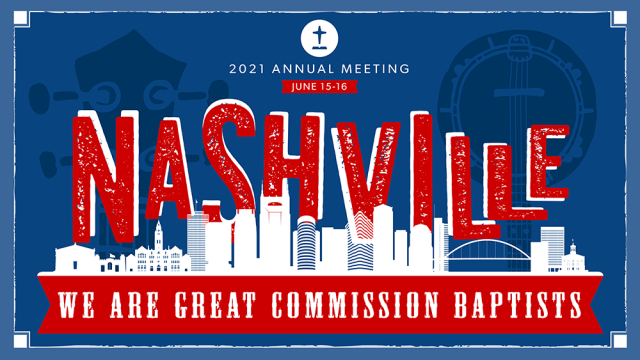
Jesus told His disciples to go into all of the world to preach the Good News. Mark records His words as, “Go into all the world and preach the Good News to everyone” (Mark 16.15, NLT[1]). This is a very broad statement. It is one that we have understood to be entrenched into what it means to be Baptist. Our heritage of faith is built solidly on the foundation of missions and evangelism.
However, as we have trudged into the 19th century to follow our Baptists fathers, we have to be real about controversy that builds among a diverse mindset and region. If you will follow what you know about American history in the early to mid-1800s, this will not catch you by surprise. Tensions were growing far and wide in our nation around the issue of slavery. Baptists in America were not immune to the tension and, unfortunately, were part of the problem. We have to be real about this.
With great momentum for the Gospel, American Baptists produced the Triennial Convention, the American Baptist Home Missions Society, and the Baptist General Tract Society. Each of these arms were pulling Baptists across our growing nation into missions, both foreign and domestic. Let me bring you in on a little secret: the expansion of the Gospel is war against Satan. It is a declaration that the true King reigns and the enemy is on notice. So, with a growing nation and a growing movement to evangelize the world, spiritual warfare will ramp up and often times one of the greatest strategies our enemy uses against us is to attack from within. Here comes the American Baptist controversy.
A minor controversy developed around a pastor of Scottish descent named Alexander Campbell. Many theological dissentions grew as well as a movement that was anti-missions with his teaching. Eventually, many congregations who aligned with Campbell split off to form a new denomination, now known as the Church of Christ or Disciples of Christ Churches.[2] While it would appear that many congregations defecting would be more than just a minor controversy, as Baptist historian Leon McBeth notes, “another controversy loomed on the horizon which would shatter the denomination into a sectional schism that endures to this day.”[3]
Money talks. It is less than fortunate that this statement cannot be divorced from church work and ministry, especially on the national level of cooperation. Many factors led up to the 1845 meeting of Baptist leaders from southern churches. Though the contributed to the Home Missions Society (HMS), these church leaders believed that a disproportionate number of missionaries were sent to the northeast and pioneer states, leaving their mission fields without support. Historical records would actually show that the southern states did send more money to the HMS than was expended in their region, but the same was also true for northern Baptists, who far out supported the expenses of missionaries in their field.[4]
But, the money issue was not only contained in the HMS. “Slavery was the main issue that led to the 1845 schism; that is a blunt historical fact. Other issues raised barriers and, in time, might have led to division, if not North-South, possibly East-West. However, slavery did lead to division.”[5] If there is one thing that can disrupt a movement of the Gospel, it is a moral failure on the part of the Church of Jesus Christ. Baptists in the South experienced this for sure, but it was economics that drove the decision.
I will be clear on this: slavery is immoral and it is an affront to God. The African slave trade is one of the darkest and dehumanizing evils that this world has witnessed. Its affront to God is not just in the denial of human and civil rights to Africans, but in its denial of the Imago Dei, that is, the image of God in ALL people. Even as we are approaching 160 years since slavery ended (praise God), we still have to be real about the impact its practice has made, even to today.[6]
It is important for us to get a bearing on the economic impact of this decision. Again, for the purposes of clarity: Southern Baptists were wrong and in sin. But, this lengthy quote from Leon McBeth sheds a little light on the full spectrum of the debate:
“Before 1800 slavery had not become a section issue. One might find antislavery viewpoints in both North and South; indeed, the evidence confirms more antislavery societies in the South before 1800. The immense profit in importing slaves accrued more to the North than the South. That importation was outlawed in 1807. The invention of the cotton gin in 1792 made slave labor more profitable in the South, whereas Northern industry profited less from slave labor. Thus, around the turn of the century, the slave system lost its profitability in the North just as it gained new profitability in the South. These related realities must be assessed in any evaluation of evolving attitudes toward slavery in the two regions.”[7]
This is in no way an attempt to excuse the practice. However, it does show the way money influences the way decisions were made. There were several state Baptist conventions who decried slavery as evil. For example, in 1785 the Baptist General Committee of Virginia made a strong statement about slavery by asserting it to be “contrary to the Word of God”.[8] On the contrary, Richard Furman, a prominent pastor of First Baptist Church in Charleston, SC, the first president of the Triennial Convention, leader in the formation of the Southern Baptist Convention, and namesake of Furman University in Greenville, SC was one of the largest slaveholders in the state of South Carolina.[9]
Attempts to reconcile between Baptists in the North and Baptists in the South were made throughout the early 1840s, prompting both the Triennial Convention and the Baptist Home Missions Society to voice a stance of neutrality when it came to slavery. Neutrality could not be maintained. Georgia Baptists tried to force the issue in 1841 by presenting an application for a slaveholder to serve with the HMS; the HMS declined to consider the application. Alabama followed suit with a series of questioning for the Triennial Convention concerning the appointment of slaveholders as missionaries.[10] These were not attempts made in good faith, but attempts to pigeonhole the mission societies into a stance on the issue to serve their own purposes. But, we dare not get it twisted. Southern economies were thriving because of slave labor. Their interests were not Gospel oriented toward the salvation and discipleship of black men and women, but for the economic gain they could achieve because of their presence. The questions raised by Georgia and Alabama had the wrong starting point, which cannot be changed, but also cannot be denied.

Why so much history? I am a believer that we must learn our history in order to prevent ourselves from making the same mistakes. We are at a point as a convention of churches where we must re-establish our identity. We are Great Commission Baptists. We made a huge mistake in the early 19th century when it came to recognizing the image of God in men and women who looked different than us. Our Baptist forefathers fought hard and many of them died for their religious beliefs concerning freedom of the conscience, priesthood of the believer, and believers’ baptism. This was nearly forfeited when the Baptists of the South dug in their heels for an evil cause. We became known as Southern Baptists then.
Think through that with me just a second. History speaks for itself, but we have a chance right now to embrace history, learn from it, and grow in a new direction. We want to be known as Baptists who are committed to the Great Commission, so we have adopted the second identifier “Great Commission Baptists”. We want our history to reflect our commitment to the Gospel and the call of Christ to go to the nations. It is when we see how we began that we see, and appreciate, the efforts that Baptist leaders in the late 19th century took to correct the error that slavery placed on us. It is when we see how far away from the Gospel that our beginnings took, that we can remember how far away from the Gospel each one of us was when Jesus stepped in to redeem. It is when we see the darkness of sin in our 1845 “birth” that we can see the glory of Christ in our work now to reflect the Great Commission. You and I are saved because someone took the words of Christ seriously enough to preach the Good News to us. We cannot forget that!

[1] Scripture quotations marked NLT are taken form the Holy Bible, New Living Translation, copyright ©1996, 2004, 2015 by Tyndale House Foundation. Used by permission of Tyndale House Publishers, Inc., Carol Stream, Illinois 60188. All rights reserved.
[2] Leon McBeth, The Baptist Heritage: Four Centuries of Baptist Witness (Nashville: Broadman Press, 1987), 379.
[3] McBeth, 379.
[4] McBeth, 380-81.
[5] McBeth, 382. Italics in original.
[6] Because Baptists seem to love controversy, this will be fleshed out more in a couple of weeks as we grapple with some recent concerns over Critical Race Theory among Southern Baptists in the last decade. Stay tuned.
[7] McBeth, 383. Italics added.
[8] McBeth, 383.
[9] McBeth, 384.
[10] McBeth, 387.
